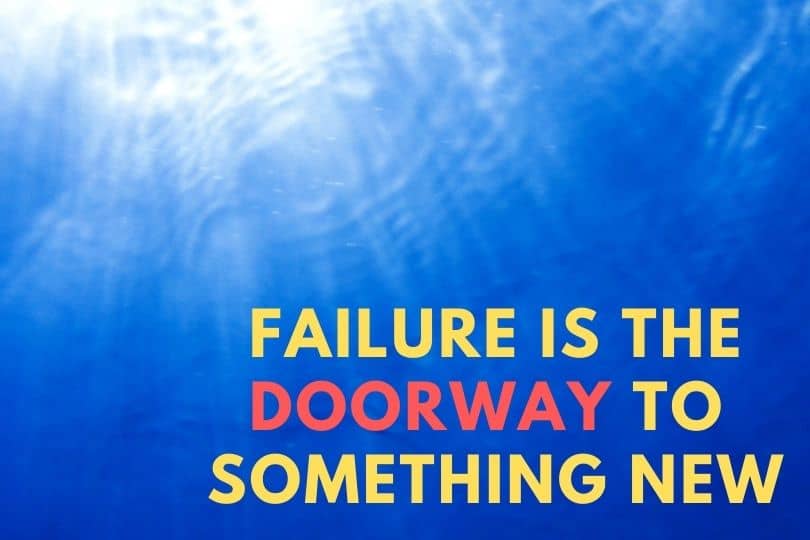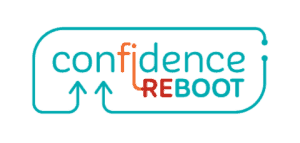
The difference between minor setbacks and major setbacks is often the time it will take for you to dig your way out of a situation. The more serious the setback and bad days can turn into a bad months and even bad years.
Maintaining a positive attitude is hard work during tough times, and I find that the first step in dealing with a bad thing is putting it into perspective.
When Michael Jordan (MJ G.o.a.t.) was asked if he’d want to change anything in his career leading up to his fame, he said, no because all of it (including the setbacks) brought him to where he is.
Personally, I’ve dealt with some major setbacks in my life.
Many years ago, I had a pretty tough seven-year run.
It started with bankruptcy and foreclosure in 2008-9 with the real estate crisis, my family died (mother to cancer, brother to suicide, and dad to a surgery gone wrong within a 5-year span). Divorce (child support, alimony) followed that which also led to a career setback and change as well as new financial struggles.
Though setbacks happen in everyone’s life, it’s how you respond to them that defines your success.
Life is a series of ups and downs; good days and bad days, you must always be prepared for obstacles.
Here are some of the most common setbacks:
- Health Problems or a Health Challenge
- Major Career Setback or Job Loss
- Relationship Issues
- Unexpected Bills and Financial Struggles
- Losing People We Love
- Elderly Care or Childcare
- Depression and Anxiety Recovery
Whatever your current setback, the following are a few steps that (I hope) will help you rekindle confidence in yourself the next time life throws you some hard times and lays out some speed bumps on your yellow brick road:
15 Ways To Regain Self-confidence In Life, Career, And Relationships After A Setback Or In The Face Of Adversity:

1. Focus on Bigger Picture Thinking (More than just a positive attitude): Get a God’s Eye View perspective on the situation. Instead of seeing your life from a “street level,” imagine looking at it from a plane.
From above you can see how all the roads tie together in a perfectly orchestrated pattern.
Consider that with every adversity a seed of an equal advantage is planted. Learn from your past failures and setbacks but do not dwell on them as they won’t serve any purpose. Consider that everything works together for good.
I have a half-sibling that I recently found out about.
We don’t know each other. It’s strange to think that they might find growing up without a relationship with their biological father traumatic. However, I realize that they were better off growing up without him.
From their perspective, they may see it as a loss. But I know the state of mind my father was in during the years my half-sibling would have grown up.
PTSD from the Korean war would have made their life much more difficult as it did my brother who suffered physical abuse.

2. Keep your Options Open: Do not close doors, even if you think you have failed.
There is always the possibility of success if you never give up. Resilient people can accomplish amazing things and when they do, the end result is a better quality of life. Here is an article I wrote about developing grit.
Important lessons are often discovered years down the road.
Consider that you may not understand what is happening now, but if you keep your options open and don’t make any rigid decisions about how your life is going to go (especially from a perspective of grief), you will avoid negative thinking and put yourself on the road to recovery.

3. Own Up to Your Shortcomings: Get connected to the reality of the situation and what you contributed to it.
You are the only person you can change. You may not be perfect, but there are ways to deal with your deficits and work on improving them. Admit your mistakes, learn from them and move ahead in life.
Harvest the good forget the rest.

4. Do Not Lose Hope or Blame Others: It’s difficult when things do not go as planned. It’s easy to want to blame others, but keep the faith and hold on to hope that better times are just around the corner.
It’s a good mental exercise to run through the setback as if everything were up to you.
Sometimes we need bad things to happen so we know what we don’t want.
When I’m at a loss, I attribute the setback to the fact that life is giving me a new level of contrast so that I can understand what is important to me, what I want, and where I should go from here.

5. Be Flexible: Setbacks are a part of life, and like plants, we don’t grow in a straight line.
No matter what happens in life, be flexible enough to accept new challenges and face them with enthusiasm.
If possible take a break for a few days or weeks until you regain self-confidence after experiencing failure or loss of job.
With any major life event, it’s important to grieve as needed at the right time. The right time is characterized as when the need arises.
I remember my grief counselor told me that when the wave of despair hits you, just go with it. Cry or feel it the way it warrants. Don’t suppress it, push it down, or resist it.
You may need to excuse yourself from a social setting. But give the emotion space to breathe.

6. Look for New Opportunities Outside of Your Comfort Zone: If you feel like you have hit a brick wall, it’s not the end of the world.
This is a good time to re-evaluate yourself. Don’t give up, as you need to keep trying until you succeed.
Fork in the road events is important to living your best life.
We live in a binary world.
There is no up without down, no happy without sad, etc. Tell yourself that somehow the setback you are experiencing is only bringing the best version of you to those around you. Here’s an article I wrote about becoming the best version of yourself.

7. Stand Tall and Focus on Your Health: Despite the setback, stand proud and confident in your achievements or expertise (even if it is still in the making).
Remember that negativity will eat away at your self-confidence so stay positive.
Get plenty of sleep. Pause throughout the day to take deep breaths.
You can use an app to help you remember.
Pay attention to what you are eating.
If you are dealing with health issues, find out how a new dietary regimen could make a difference and/or seek out a second opinion.
Jordan Peterson in his book the 12 Rules lists this as the First Rule. He draws an analogy to our biology.
When we stand up straight, we assume our role as predator, not prey, which tells ourselves and others that we are competent.

8. Simplify Your Life: After experiencing failure or loss of job, get back to basics; spend good quality time with family and friends, and share experiences from your past.
Lean heavily on your support system.
There is more satisfaction when you are happy with what you have achieved instead of being obsessed with material things or what you have lost.

9. Seek Out New Knowledge (Find a Good Mentor): Never stop reading books, attending seminars, or going online to learn something new.
It will not only broaden your horizon but also allow you to share knowledge with others.
Get some role models that you can emulate. Maintain a bit of an idealistic view of them like a senior advisor.
That way, whether they are truly as good as you think or not, it gives you the right direction to grow in and explore new paths.

10. Realize that Failure is Not the End: Failure isn’t a report card on your value. Let it be what is.
It’s a failure to accomplish something.
Failure is a good thing, as it gives us more understanding of how to do things the right way.
Stay away from negative thinking or seeing failure as permanent.
It takes time and effort to rise again after experiencing setbacks in life, relationships, or career.
But as long as you never give up, you will be on your way to good results, positive emotions, and good times again.

11. Use Social Media Responsibly: Don’t compare yourself with others.
Do not measure your progress against others; this will only make matters worse for you if you are not doing well at all. Set realistic goals based on your own potentials and strive hard to achieve them.
Don’t use social media to compare or play the victim.
While playing the victim of negative life experiences can yield some welcomed care from others, my experience is that it is short-lived.

12. Turn Anger into Willful Determination: Anger can be destructive, but it can also be powerful fuel.
Let go of negative thoughts and channel that energy into becoming determined to overcome any situation.
When it comes to career management, this can be especially useful. (Here is a useful article on our blog about dealing with anxiety at work)
Learn to direct your anger towards a positive goal.
For instance, if you lose your job, get determined to become so good at what you do, your old boss will regret ever letting you go.

13. Take Control of Your Life’s Mission: You are responsible for your own well-being so choose wisely and avoid risky behavior that can lead you to more problems or failure.
Tell yourself that everything in your life is up to you to shape how you want it.
In order to shape the life you want, get clear on what you want your life to look like. Write down your life’s mission.

14. Practice Developing Your Will: Life is not always fair but as long as you never give up, opportunities will arise again. When the going gets tough, remember; anything worth having requires a will and a focus!
Will is like holding a magnifying glass under the sun.
When you focus all the power into one spot, it becomes a powerful tool.
Bob Proctor taught me to spend time staring at a candle.
When my mind wanders, it’s okay, I bring it back to the candle. This will help you learn to focus and help you develop your willpower.

15. Start or Keep a Learning Journal: -Focus on the positive takeaways or at least what you are learning that you would not have known without the experience.
Do not dwell too much on negative emotions as they will only drag you down into depression.
Instead, keep a positive attitude towards challenges and set realistic goals based on your strengths and weaknesses.
Spend time getting to know yourself and becoming self-aware.
As you become more aware of yourself and what makes you tick, you will discover that you start to become aware of others in a whole new way.
I hope these 15 ways help gain self-confidence after experiencing setbacks in life, career, or relationships.
With each type of setback comes some specific issues that you will need to get resolved. I’ve spent some time putting together more extensive information on recovering from specific setbacks for a deep dive into the aspects of each one, select from the list below:
Further Reading On Our Blog
Recovering from Depression – 17 Point Guide
In this 17 Point Guide on regaining confidence after depression, we dive into:
- How to get past the idea that your best days are behind you.
- How to set your life for small wins that get you on track feel like your old self again.
- How to stop negative thinking in its tracks.
Recovering from Anxiety – 21 Point Guide:
Here are the first 4 concepts
- Discover the relationship between anxiety, fear, depression, and anger: When you understand the link between these emotions, you can start to see that the presence of anxiety may indicate you are taking important steps to a better life.
- What drives and fuels more anxiety: Get to know what causes more anxiety and understand that anxiety isn’t always in your mind.
- Reflection and anxiety: Getting to know where the fear and anxiety started can give you a new perspective on what drove up the presence of anxiety in your life you can reshape the story and pattern.
- Clear your mind of anxiety triggers: Discover the ABC method. (-Later I discuss the ELF method as well from Dr. David Thomas.)
Read the complete list on recovering from anxiety here
Recovering from Divorce
This article is a list of great ideas to jumpstart your recovery from setbacks that divorce brings with it, and it will help you re-invent yourself after divorce.
If you are experiencing parental alienation, read my article on dealing with parental alienation.
Recovering from a Sports Injury
If you recovering from a sports injury, especially one that threatens your sports career, you might find some valuable ideas in this article.
I personally discussed this with top athletes from the NFL and CrossFit as well as pulled together research from what other top performers like Usain Bolt have discussed when it comes to recovering from athletic setbacks.
Here is an article about recovering specifically from knee surgery and ACL repairs.
Recovering from Mental or Physical Abuse
In this article, we discuss the long-lasting effects of abuse and what steps to recover powerfully from it.
